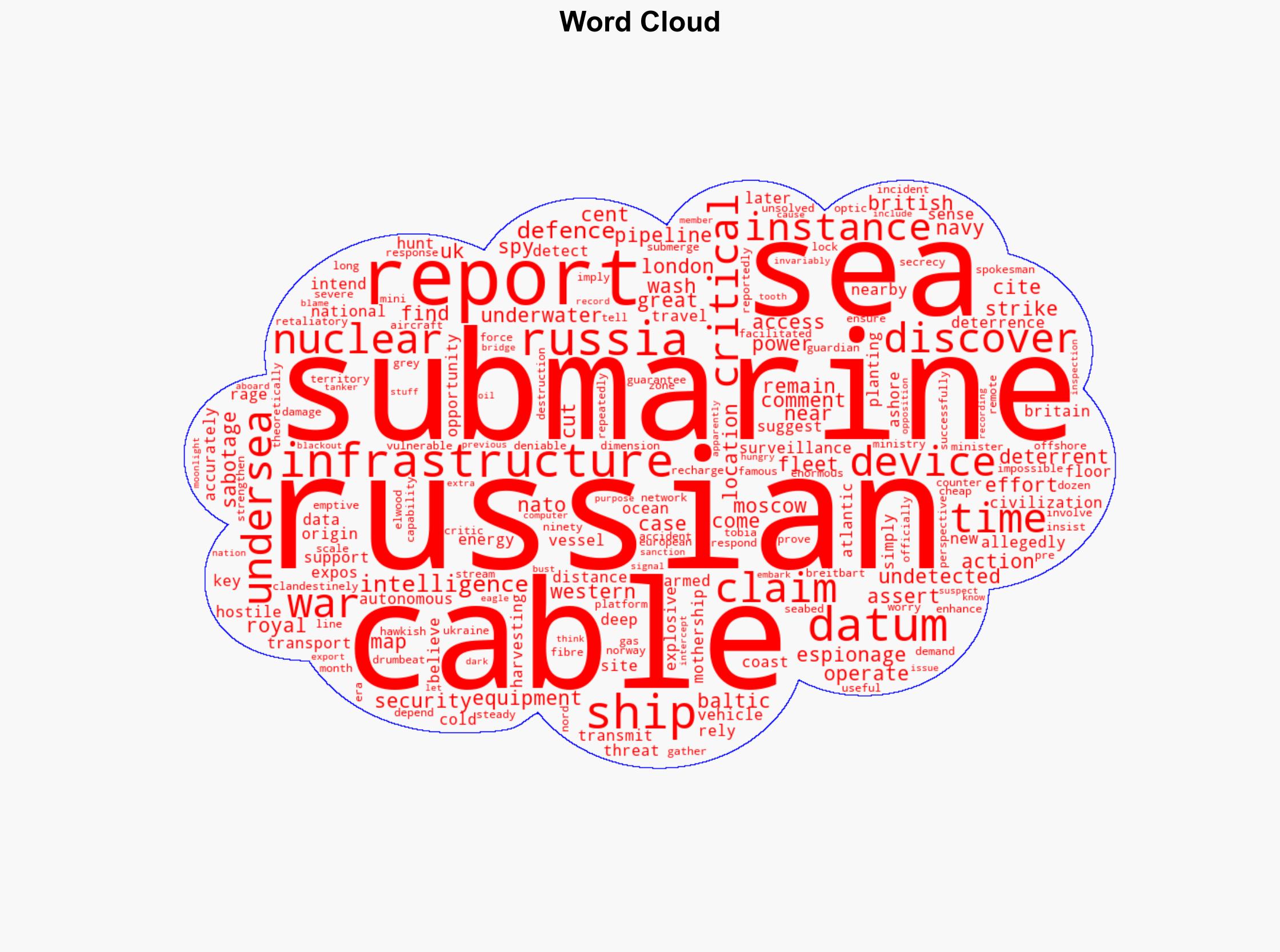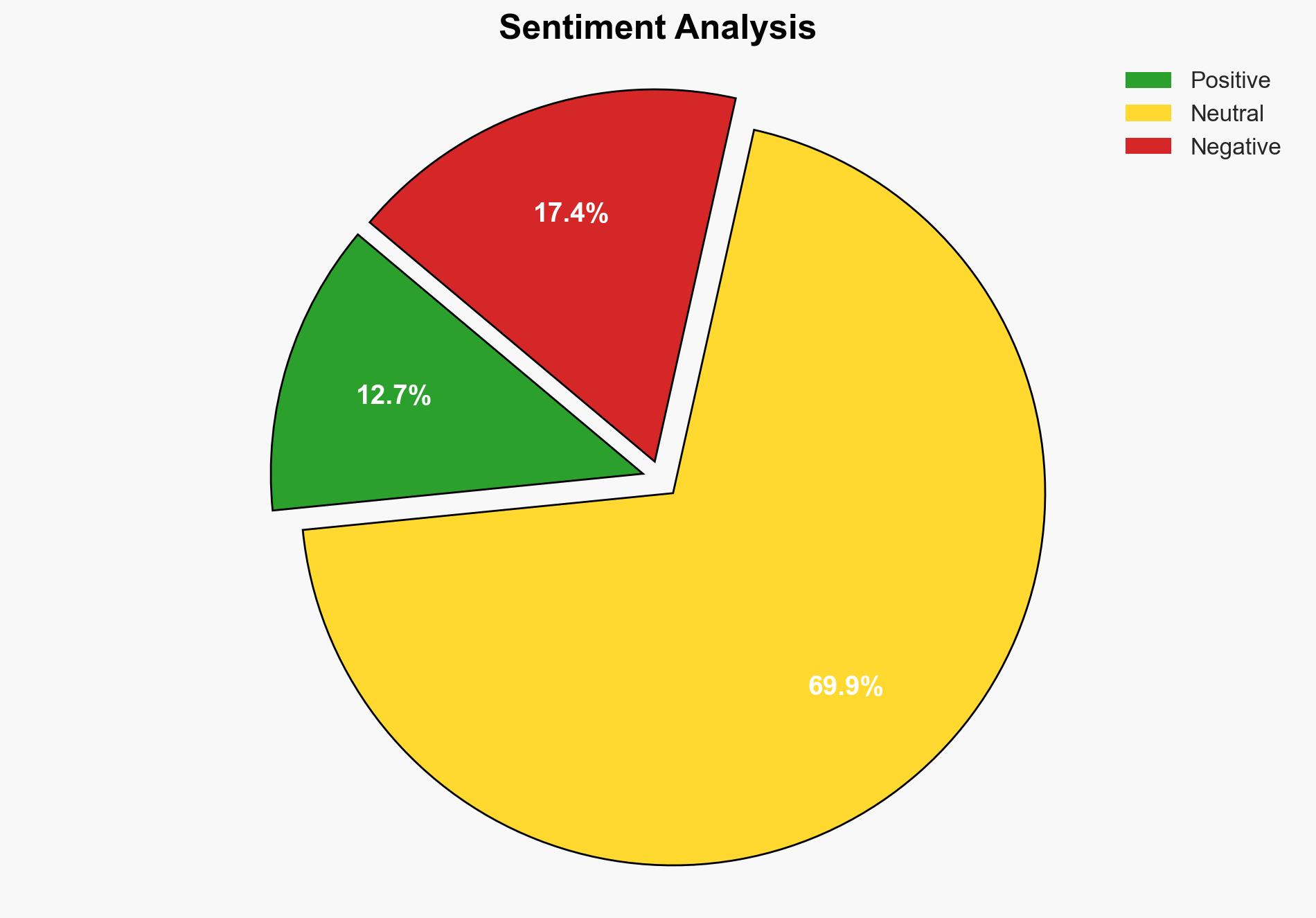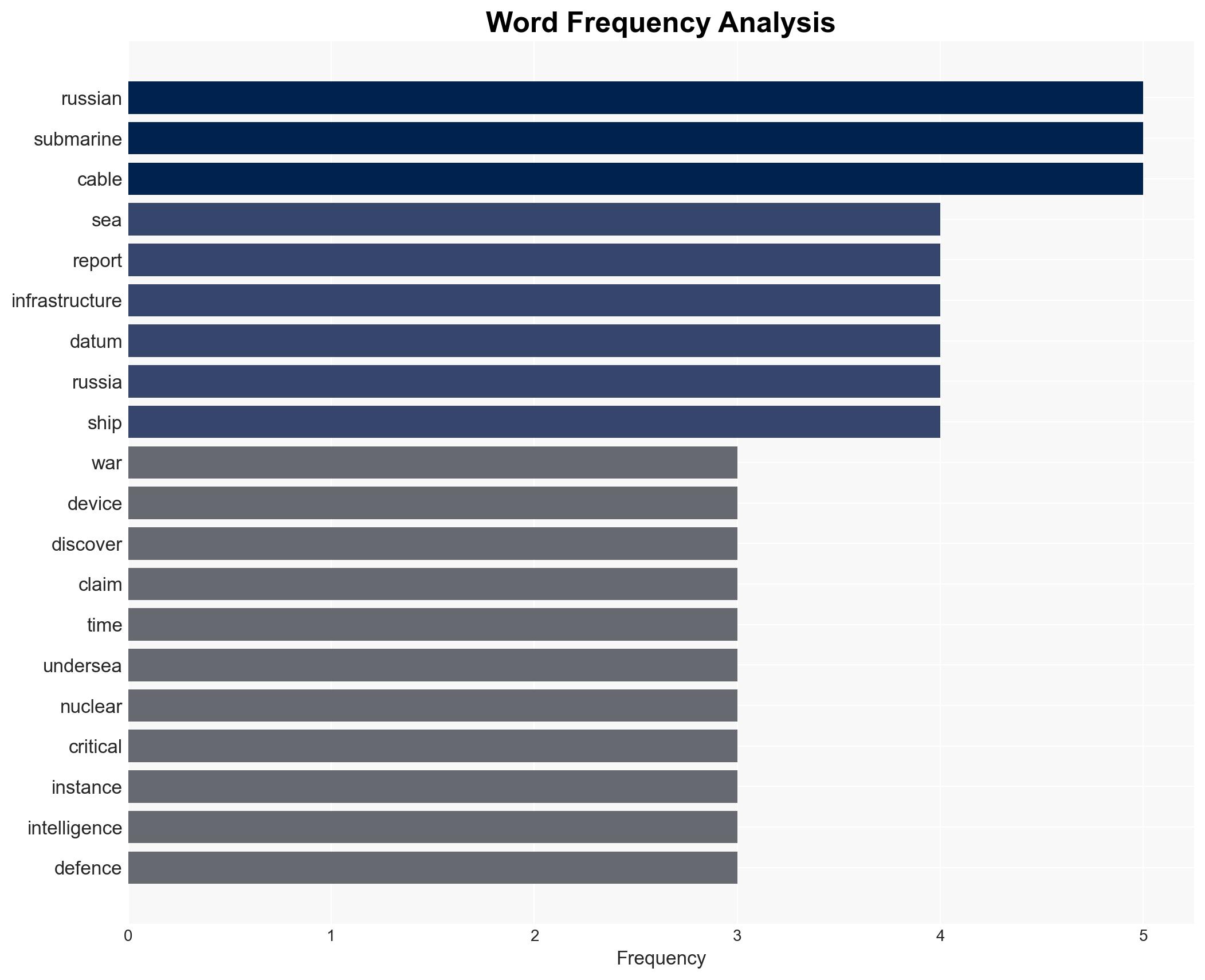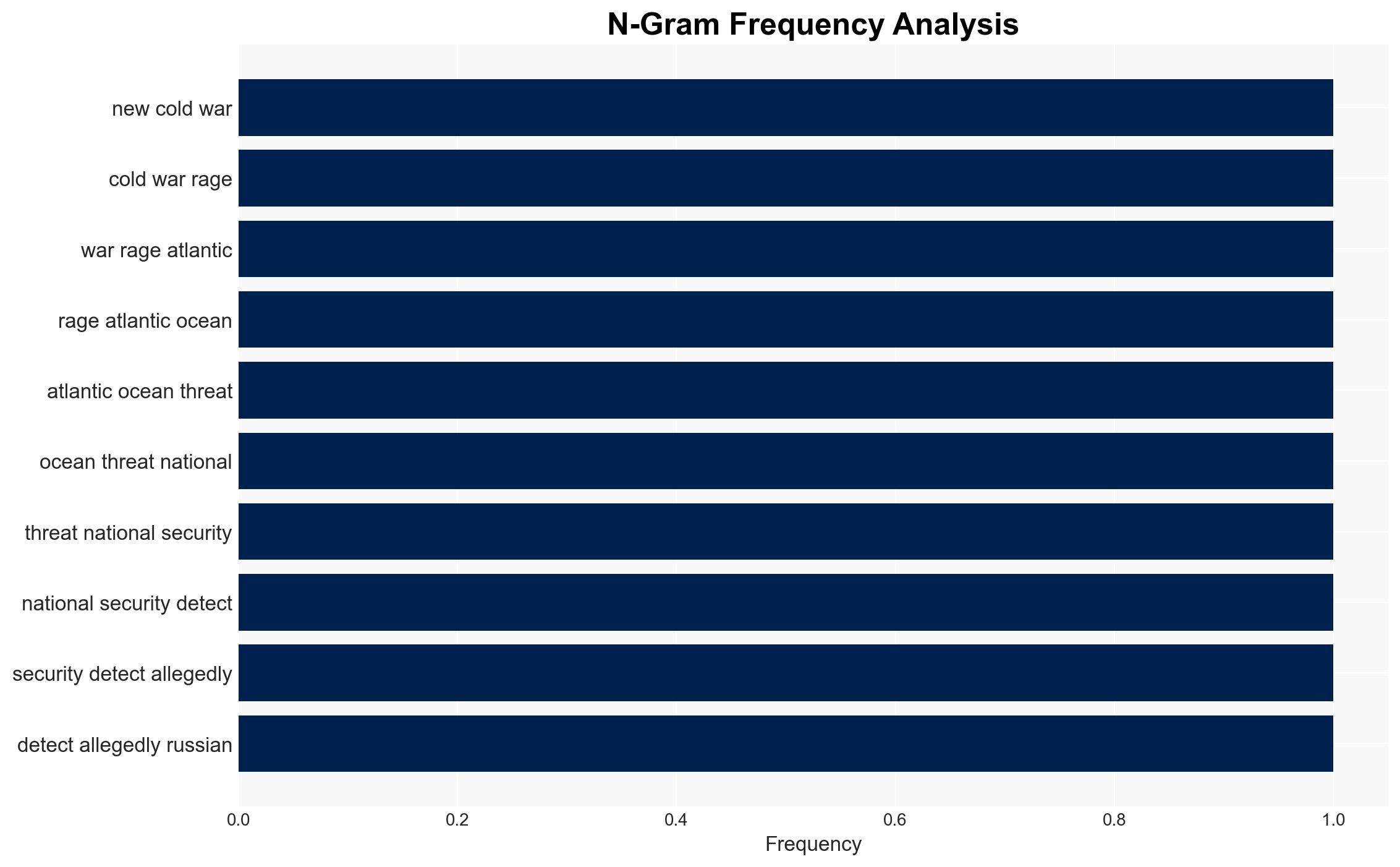Russia Planted Sensors to Spy on Britain’s Underwater Cables and Nuclear Submarines Report – Breitbart News
Published on: 2025-04-07
Intelligence Report: Russia Planted Sensors to Spy on Britain’s Underwater Cables and Nuclear Submarines Report – Breitbart News
1. BLUF (Bottom Line Up Front)
Recent reports indicate that Russia has allegedly planted sensors on the sea floor to spy on Britain’s underwater cables and nuclear submarines. These devices, believed to be of Russian origin, pose a significant threat to national security by potentially gathering intelligence on Britain’s nuclear deterrent forces and NATO’s critical underwater infrastructure. Immediate actions are recommended to enhance security measures and counter espionage activities.
2. Detailed Analysis
The following structured analytic techniques have been applied for this analysis:
General Analysis
The discovery of alleged Russian spy devices on the sea floor near Britain highlights a significant escalation in undersea espionage activities. These devices are reportedly intended to monitor Britain’s nuclear-powered and nuclear-armed submarines, which are crucial for maintaining a credible deterrent force. The presence of these sensors could compromise the operational secrecy of these submarines, potentially making them vulnerable to pre-emptive strikes.
Additionally, the strategic placement of these devices near critical undersea infrastructure, such as data cables and pipelines, poses a risk of sabotage and data interception. The report suggests that Russian autonomous submarines, supported by motherships, have been clandestinely accessing these locations, raising concerns about the security of Western energy and data transmission networks.
3. Implications and Strategic Risks
The implications of these activities are far-reaching, affecting national security, regional stability, and economic interests. The potential for espionage and sabotage of undersea infrastructure could disrupt energy supplies and data communications, leading to significant economic and operational impacts. The ongoing tensions between the UK and Russia, exacerbated by these findings, could further destabilize regional security dynamics.
The report also highlights the broader context of increasing incidents involving European critical infrastructure, such as the Nord Stream pipeline destruction and repeated fiber optic cable cuts in the Baltic region, often attributed to Russian activities.
4. Recommendations and Outlook
Recommendations:
- Enhance surveillance and monitoring of undersea infrastructure to detect and neutralize espionage devices.
- Strengthen international collaboration and intelligence sharing to counter undersea threats.
- Invest in advanced technologies for detecting and mitigating undersea espionage and sabotage activities.
- Implement regulatory measures to safeguard critical infrastructure and improve resilience against potential attacks.
Outlook:
Best-case scenario: Enhanced security measures successfully deter further espionage activities, and international cooperation leads to improved protection of critical infrastructure.
Worst-case scenario: Continued espionage and sabotage activities result in significant disruptions to energy and data networks, escalating tensions and potential conflict.
Most likely scenario: Ongoing vigilance and incremental improvements in security measures mitigate immediate threats, but underlying tensions persist.
5. Key Individuals and Entities
The report mentions Tobia Elwood in the context of responding to the claims and advocating for enhanced defense capabilities. No roles or affiliations are provided for individuals mentioned in the report.





